
The Socialist Unity Party of Germany, often known in English as the East German Communist Party, was the governing Marxist–Leninist political party of the German Democratic Republic from the country's foundation in October 1949 until its dissolution after the Peaceful Revolution in 1989. The party was established in April 1946.
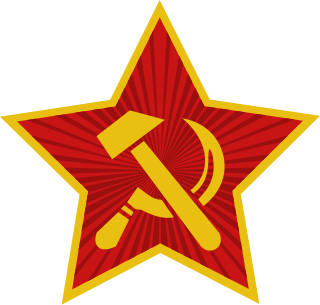
The Communist Party of Germany was a major political party in Germany between 1918 and 1933, and a minor party in West Germany in the postwar period until it was banned in 1956.

Ernst Thälmann was a German communist politician. He was leader of the Communist Party of Germany (KPD) from 1925 to 1933.
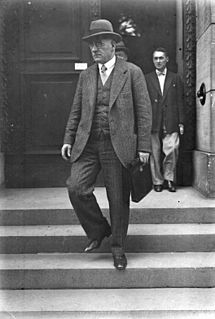
Otto Braun was a German Social Democratic politician who served as Prime Minister of Prussia for most of the time from 1920 to 1932. After the Nazis seized power in 1933, Braun went into exile in Switzerland.

Friedrich "Fritz" Ebert Jr. was a German politician and East German communist official, the son of Germany's first President Friedrich Ebert.
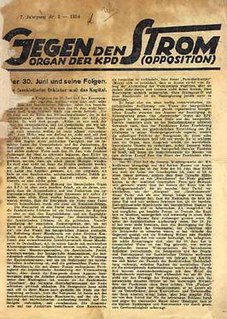
The Communist Party of Germany (Opposition), generally abbreviated as KPO or KPD(O), was a communist opposition organisation established at the end of 1928 and maintaining its existence until 1939 or 1940. After the rise of Adolf Hitler and the Nazi Party to power in January 1933, the KPO existed only as an illegal and underground organization. The group initially sought to modify, later to replace, the mainstream Communist Party of Germany (KPD) headed by Ernst Thälmann. The KPO was the first national section affiliated to the International Communist Opposition (ICO).

Federal elections were held in Germany on 5 March 1933, after the Nazi seizure of power on 30 January and just six days after the Reichstag fire. Nazi stormtroopers had unleashed a widespread campaign of violence against the Communist Party (KPD), left-wingers, trade unionists, the Social Democratic Party of Germany, and the Centre Party. They were the last multi-party elections in a unified Germany until 1990.
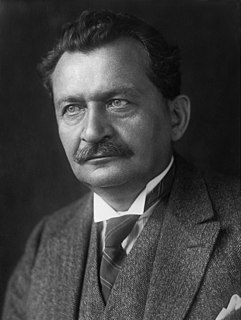
Federal elections were held in Germany on 14 September 1930. Despite losing ten seats, the Social Democratic Party of Germany (SPD) remained the largest party in the Reichstag, winning 143 of the 577 seats, while the Nazi Party (NSDAP) dramatically increased its number of seats from 12 to 107. The Communists also increased their parliamentary representation, gaining 23 seats and becoming the third-largest party in the Reichstag.
Social fascism was a theory supported by the Communist International (Comintern) and affiliated communist parties during the early 1930s, which held that social democracy was a variant of fascism because — in addition to a shared corporatist economic model — it stood in the way of a dictatorship of the proletariat. At the time, the leaders of the Comintern, such as Joseph Stalin and Rajani Palme Dutt, argued that capitalist society had entered the "Third Period" in which a working class revolution was imminent, but could be prevented by social democrats and other "fascist" forces. The term "social fascist" was used pejoratively to describe social democratic parties, anti-Comintern and progressive socialist parties and dissenters within Comintern affiliates throughout the interwar period. The "social fascism" theory was advocated vociferously by the Communist Party of Germany, which was largely controlled and funded by the Soviet leadership from 1928.
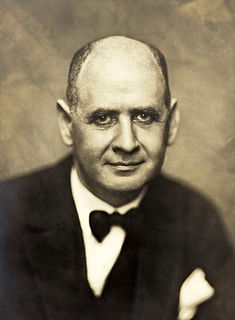
Paul Levi was a German Communist and Social Democratic political leader. He was the head of the Communist Party of Germany following the assassination of Rosa Luxemburg and Karl Liebknecht in 1919. After being expelled for publicly criticising Communist Party tactics during the March Action, he formed the Communist Working Organisation which in 1922 merged with the Independent Social Democratic Party. This party, in turn, merged with the Social Democratic Party a few months later and Levi became one of the leaders of its left wing.

Antifaschistische Aktion, commonly known under its abbreviation Antifa, was an organisation affiliated with the Communist Party of Germany (KPD) that existed from 1932 to 1933.

The Iron Front was a German paramilitary organization in the Weimar Republic that consisted of social democrats, trade unionists, and liberals. Its main goal was to defend liberal democracy against totalitarian ideologies on the right and left, and it chiefly opposed the Nazi Party with their Sturmabteilung wing and the Communist Party of Germany with their Antifaschistische Aktion wing.

The Social Democratic Party in the GDR was a reconstituted Social Democratic Party existing during the last phase of the East German state. Slightly less than a year after its creation it merged with the West German Social Democratic Party of Germany.
The Social Democratic Party of Saarland was a political party existing between 1946 and 1956 in the Saar Protectorate. It had a short-lived predecessor, the Social Democratic Regional Party of the Saar Territory existing between 1933 and 1935 in the Saar Territory.
Hans Staudinger was a politician of the Social Democratic Party of Germany (SPD) and an economist, as well as a secretary of state in the Prussian trade ministry from 1929 to 1932. From November 1932 to June 1933 he was a Social Democrat member of the Reichstag.
The Council for a Democratic Germany (CDG) was founded on 3 May 1944 in New York City. Its founding was a reaction to the founding of the National Committee for a Free Germany in Moscow in July 1943. Some of the founding members brought experiences of previous similar organizations with them, such as the Lutetia-Kreis. The Council saw itself as representing all German people. Its membership included socialists, social democrats, communists, middle-class democrats, former members of the Centre Party, writers, artists, and scientists. This gathering of exiles was to serve as a platform for opinion-shaping and exerting political influence. The chairman was Paul Tillich, a Protestant theologian at the Union Theological Seminary in New York. He gave the Council its specific political-theological shape. No other exile organization brought together a similarly wide spectrum of figures in politics and the arts.

Arthur Crispien was a German Social Democratic politician.
The Conciliator faction was an opposition group within the Communist Party of Germany during the Weimar Republic and the Third Reich. In East Germany, after World War II, the German word for conciliator, Versöhnler, became a term for anti-marxist political tendencies.
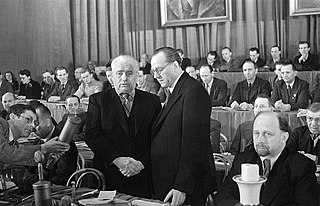
The merger of the Communist Party of Germanyand the Social Democratic Party of Germanyinto the Socialist Unity Party of Germany occurred on 21 April 1946 in the territory of the Soviet occupation zone. It is considered a forced merger. In the course of the merger, about 5,000 Social Democrats who opposed it were detained and sent to camps and jails.

Blutmai refers to several days of rioting by Communist Party of Germany (KPD) supporters in early May 1929 that led to violence between the communist demonstrators and members of the Berlin Police which was under the control of the Social Democratic Party of Germany (SPD). In defiance of a ban on public gatherings in Berlin the KPD organized a rally to celebrate May Day. Although fewer supporters showed than what the KPD hoped, the response by the Berlin Police was immediate and harsh, with police using firearms against mostly unarmed civilians. During the three days of rioting 33 civilians were killed and over a thousand would be taken into police custody. The event would be a significant moment in the decline of the Weimar Republic and its political stability. The incident also marked a turning point in relations between the center-left SPD government and the far-left Moscow-aligned KPD, weakening any prospect of a united left-wing opposition to fascism and the rising National Socialist German Workers Party. Criticisms of the severity of the police response also led to a further erosion of public trust in the government.














